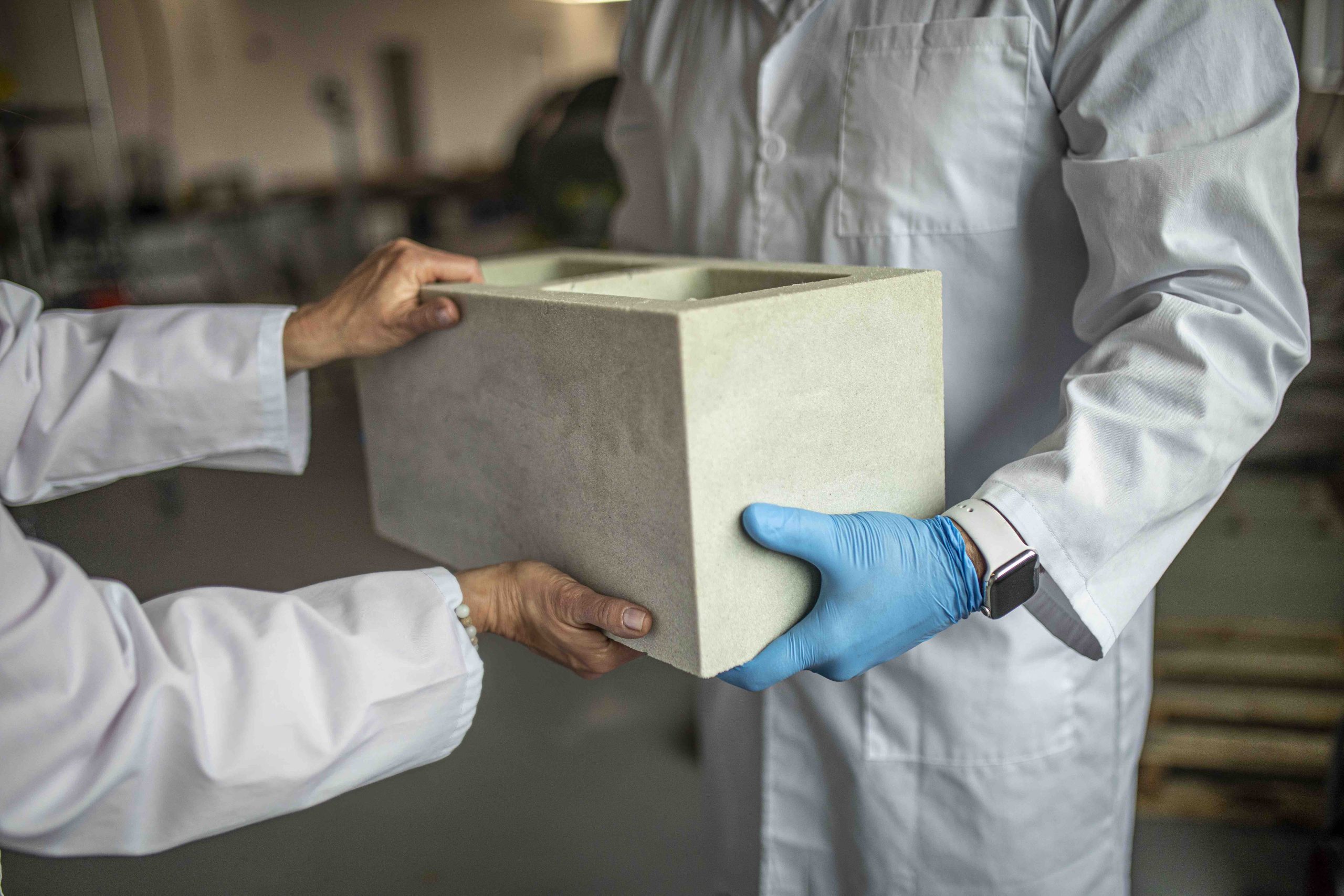Sources: Prometheus Materials, Boulder, Colo.; CP staff
Prometheus Materials, developer of a micro-algae binder alternative to portland cement, has proved the efficacy of its material in concrete masonry units, successfully testing specimen blocks to ASTM C129-22, Standard Specification for Nonloadbearing Concrete Masonry Units and C90, Standard Specification for Loadbearing Concrete Masonry Units performance requirements.

“We are thrilled to have achieved these two foundational certifications as we proceed in full-force with our goal of decarbonizing construction,” says Prometheus Materials CEO Loren Burnett. “Our product is poised to change the future of construction, converting one of the most carbon-polluting industries to a low-carbon reality.”
“The future of sustainable building solutions is here,” adds Vishaan Chakrabarti, recently appointed director. “With key certifications achieved, I’m hopeful that Prometheus Materials’ product will be deployed at scale in the near future.”
In contrast to traditional portland cement, the company’s microalgae-based bio-cement emits little-to-no CO2 and recycles 95 percent of process water. Following production, the bio-concrete has the ability to sequester embodied carbon throughout its service life.
Related article
Breakthrough Binder